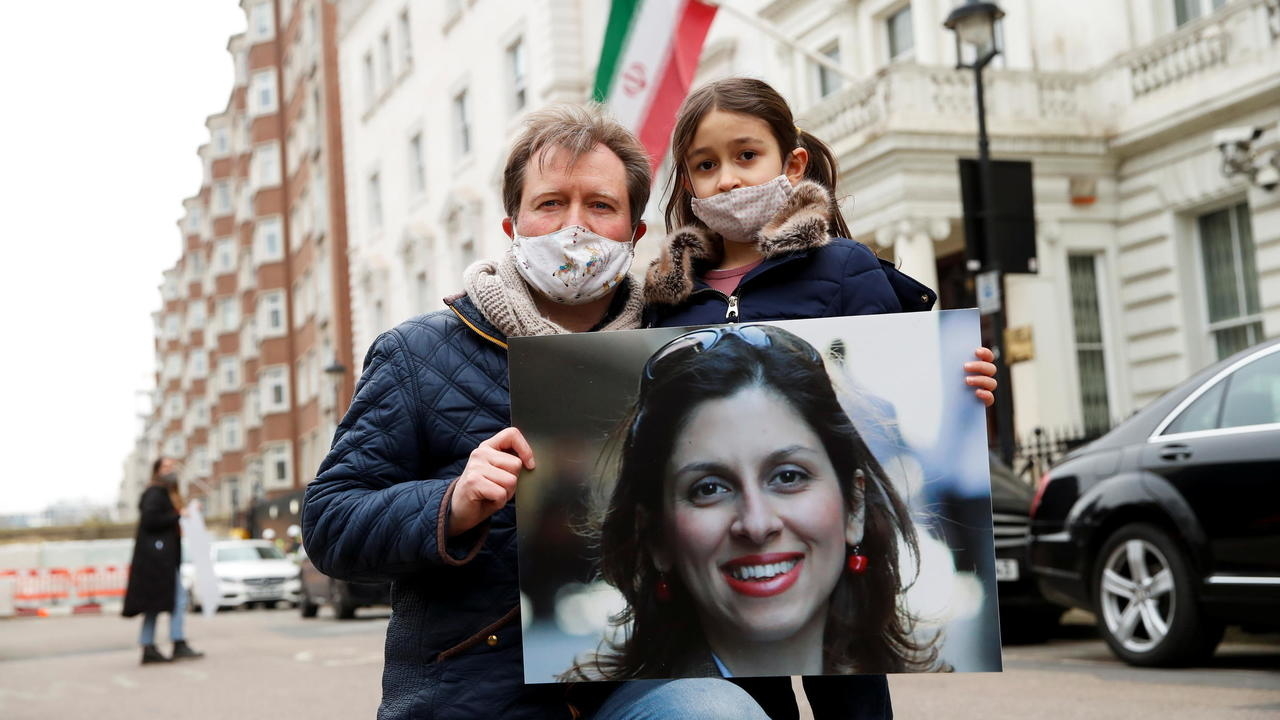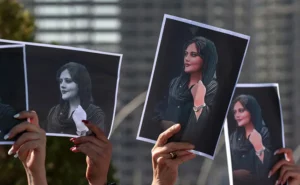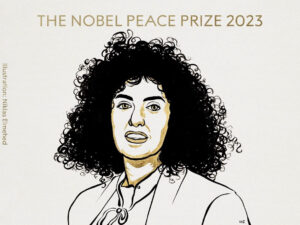British-Iranian dual national, Nazanin Zaghari-Ratcliffe, finally completed a cruel and unjust prison sentence of five years on Sunday, March 7th in Iran. In March of 2020, Zaghari-Ratcliffe was released from prison and served the remainder of her sentence under house arrest, as Iranian authorities tried to curb the spread of Covid-19 in prisons. On Sunday her ankle bracelet was removed, however, her passport has not been returned and she is still unable to return home to the U.K. where her husband and daughter reside.
Ms. Zaghari-Ratcliffe was first detained by Iranian authorities in 2016—as she was leaving Iran after visiting her family—on accusations of spying. Espionage and collaborating to overthrow the Iranian government are charges that have become all too familiar for Iranian dual nationals who have been increasingly targeted by Iran’s security forces. Cases like Zaghari-Ratcliffe’s illustrate the dearth of justice in the Iranian judiciary, in which individuals are convicted and sentenced despite a lack of due process or evidence.
In the case of Zaghari-Ratcliffe, the political nature of her ordeal is plain. In anticipation of the end of her prison sentence, Iranian authorities indicated in September of 2020 that she would be facing fresh charges. Ms. Zaghari-Ratcliffe’s prolonged suffering appears to be the result of Iranian demands that the United Kingdom pay a long overdue debt of 400 million pounds from an arms contract that predates the 1979 Iranian revolution. While the British acknowledge the debt, they argue that U.S. sanctions prevent the U.K. from paying it to Iran.
While British Prime Minister, Boris Johnson, demanded yesterday the “immediate release” of Ms. Zaghari-Ratcliffe, fears grow that her nightmare is not over—despite losing five years of her life in prison, months of which were spent under the inhumane conditions of solitary confinement. Though her husband, Richard Ratcliffe, noted that Nazanin was happy to have the anklet removed, he summed up the current mood: “I’m a bit more guarded – it feels to me like they have made one blockage just as they have removed another, and we very clearly remain in the middle of this government game of chess.”
In all of this politicking, what is lost is the life of an innocent woman, and the continued suffering of her family and young child who has lived for years without her mother. Whatever grievance the Iranian government may have with other nations, they must have no bearing on the treatment of dual and foreign nationals. Iranian authorities must recognize that people are not bargaining chips, and abide their human rights obligations. Nazanin must be immediately freed to go home to her family. That she has suffered so much is a grave injustice, with every day that passes and she is not reunited with her family and truly free, the injustice is compounded.
Back to top

